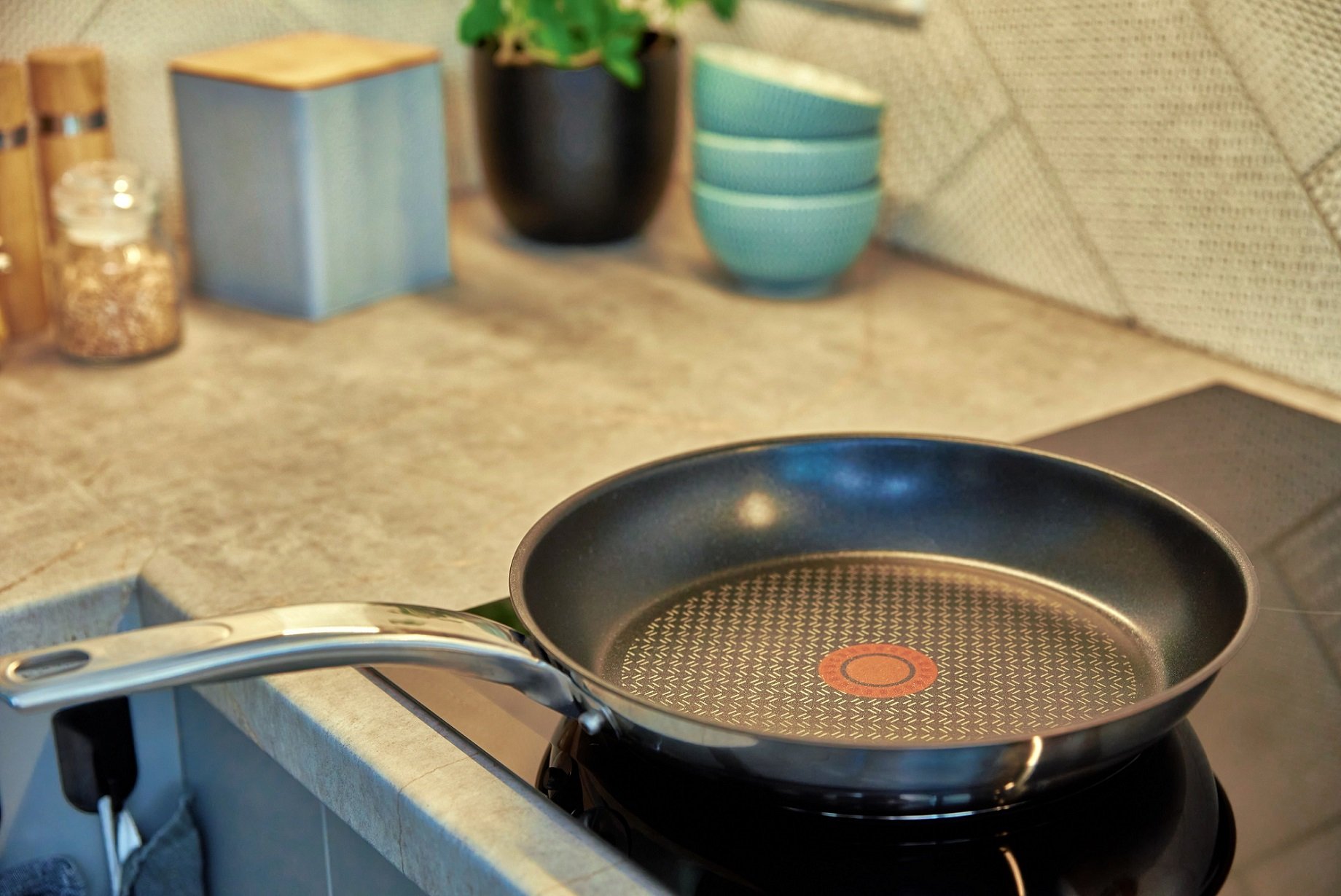Scientists from Australia and the United Kingdom have investigated the release of harmful micro- and nanoparticles from cookware using a new technique.
Is it wise to throw away cookware when you damage the coating?
Image Credit: Lazy_Bear via Shutterstock / HDR tune by Universal-Sci
Is non stick coating toxic?
A non-stick coating is, in many aspects, an excellent enhancement for cookware. It is easy to clean, prevents sauces from burning, allows you to create perfectly fried eggs, and is relatively safe (when not undamaged).
However, in case of damage, it may be best to get rid of non-stick coating cookware immediately. Non-stick coatings, such as a Teflon layer, are made from a type of plastic that belongs to the so-called PFAS family.
PFAS or 'Per- and polyfluoroalkyl substances,' have some undesirable properties:
They spread easily and quickly through the environment
They are persistent (little to no degradation takes place once in the environment)
They are bioaccumulative (they accumulate in the human body, in animals, and in plants) and can cause harmful effects
The last propertie in particular is relevant for non-stick coating on cookware as the harmful effects of these 'forever chemicals' on public health are becoming increasingly apparent.
PFAS can impair the immune system and cause all kinds of developmental disorders and cancers. The substance is hardly broken down in nature. It ends up in rain and snow, as well as in surface and groundwater – from the Himalayas to Antarctica. Everyone in the world has PFAS in their blood and organs.
Release of microplastics and nanoplastics from cooking and in the dishwasher
As you may have noticed, non-stick coatings on cookware tend to wear thin over time. A team of scientists from Australia and the United Kingdom came together in investigated the release of harmful micro- and nanoparticles in the dishwasher and during cooking.
Image Credit: Andrei Kuzmik via Shutterstock
The characterization of microplastics is still very hard, and the challenge is even greater for nanoplastics. A potential source of these particles is the scratched surface of a non-stick cooking pot that is mainly coated with Teflon.
The team employed a novel technique known as Raman imaging along with an advanced algorithmic computer model to see what happens at the microscopic level when non-stick pots and pans gradually lose their coating.
No fewer than 2.3 million toxic micro- and nanoplastics were detected as they came loose from the damaged coating layer of a single pan. It turns out that even a singular surface crack can cause the release of over 9,000 plastic particles, potentially ending up in food.
Thereare differences in how harmfulness between different types of PFAS compounds, though. Some types are more dangerous to our health than others. The exact toxicity of each individual compound is not always evident. But it is wise not to swallow it with your dinner.
Tips on how to prevent damage to your non-stick-coated cookware
You should aim to prevent PFAS from ending up in your food. That goal is quite reachable as long as you use your pans/cookware responsibly.
First of all, follow the instructions for use of your particular cookware.
Secondly, never let a non-stick-coated pan get too hot, as this can damage the coating.
Refrain from poking or stirring too hard, as well as from using sharp objects.
Immediately discard a non-stick coated pan immediately if the inner layer gets scratched or otherwise damaged.
Should you trow away a pan
According to the researchers, swallowing PFAS is a health hazard, the Teflon microparticles present in our food increase the risk of a variety of mental and physical illnesses. It is very important that more attention is paid to this type of contamination of daily meals. There is not yet enough knowledge about the consequences of this.
People should be very careful and consider immediately replacing a damaged pan because of the health risks.
According to Professor Youhong Tang, one of the authors of the underlying paper, the results provide us with a strong warning that we must be careful about selecting and using cooking utensils to avoid food contamination.
As always: if you are interested in more information about the study, be sure to check out the paper published in the peer-reviewed science journal: Science of The Total Environment, listed below.
Sources and further reading:
Raman imaging for the identification of Teflon microplastics and nanoplastics released from non-stick cookware (Science of The Total Environment)
Microplastics in the food chain (Flinders University)
Not-so-tough Teflon (Flinders University)
Damaging effects of PFAS (RIVM)
Developing an Exposure Burden Score for Chemical Mixtures Using Item Response Theory, with Applications to PFAS Mixtures (Environmental Health Perspectives)
If you enjoy our selection of content consider subscribing to our newsletter (Universal-Sci Weekly)
FEATURED ARTICLES:








